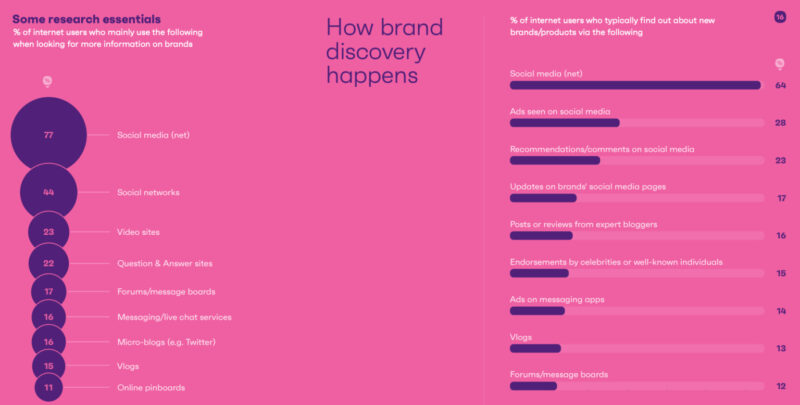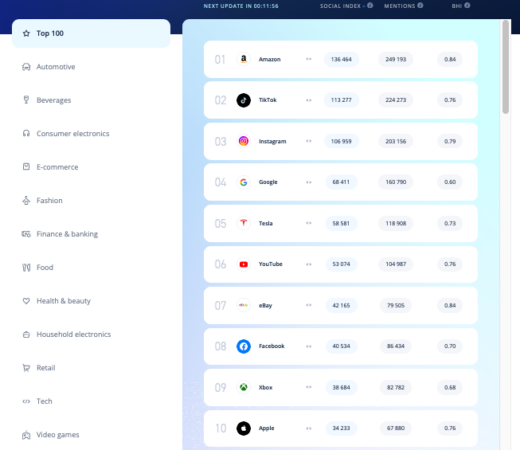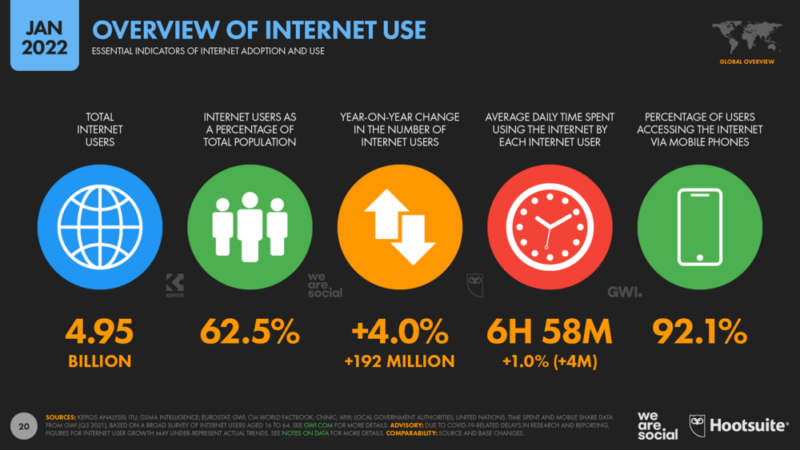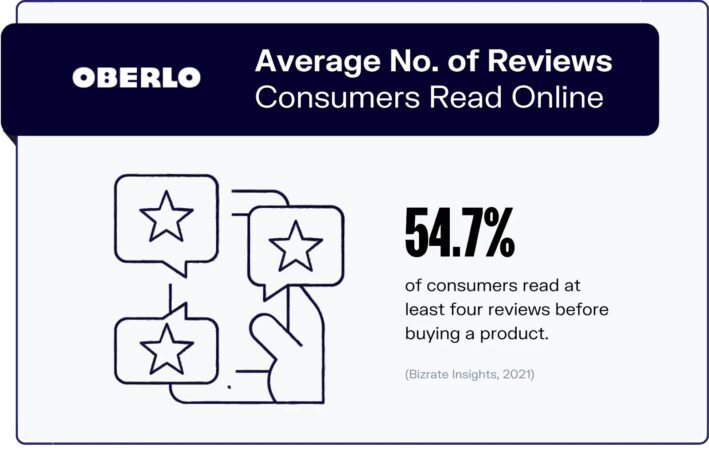Why Online Popularity Has Never Been More … Popular
What do you think when you hear (or see) the word “popularity?”
Is there a positive or negative emotion you associate with it? If it’s negative, the first step to grasping how important popularity is for your brand and company online is to remove whatever association you have.
Popularity online essentially means positive relevance. Your brand needs to have relevance online, and it needs to have a positive affiliation and association with your brand. Thus, if your brand and products have a positive relevance online, they’re popular.
Positive relevance and a positive reputation boil down to how the audience, and namely consumers, view you across the online landscape. As more people rely on the digital atmosphere to judge and gauge your brand and products, it’s more important now, and it will only increase exponentially.
Popularity Helps People Know You
Picture yourself, and your audience, inside a brick-and-mortar shop, looking at a product or comparing a few products among each other. Will you pull out your phone and look at the online reviews of the products, and the brands themselves?
Having a positive relevance and reputation online helps your brand in the digital landscape and anywhere your products might exist on a shelf somewhere.
Good reviews, positive comments and recommendations increase the chances consumers will trust your brand and will go with your products over competitors with a lower relevance and reputation (read: popularity).
Even if you have popularity and a positive relevance online, how can you fully know? One way is to implement and utilize a reliable tool that systematically analyzes and quantifies those sentiments online for you, and turns them into data to inform actionable ways to keep doing what you’re doing well, and also to improve in areas you might be lacking.
This is the self-promotional part where we tell you major brands and small businesses alike have SentiCharts on their side to tell them the full story of their brand reputation, of their relevance, across the digital landscape. Brands know themselves better, and their audience, because SentiCharts is a comprehensive, reliable, and accurate social listening analysis. It helps brands increase brand reputation, and positive relevance.
Think of it as digital connectivity.
It boils down to the 3 R’s increasing positive popularity online:
- Reviews
- Rankings
- Recommendations
Which fuel the fourth — relevance.

Source: Smartinsights.com
Your Premiere Primer on SentiCharts
Go way beyond the numbers with SentiCharts.
SentiCharts are refreshed every 24 hours and sorted into different categories based on business type — and it’s fully interactive. More than 700 brands are analyzed and gauged every single day, sorting through millions upon millions of mentions to see what is getting the most attention. Pick an industry, and go deeper — ecommerce, fashion, food, retail, household electronics, etc.
Even if your brand isn’t one of the 700-plus being analyzed daily, it’s easy to get involved and reap the rewards of the full capabilities and capacity of SentiCharts.
It’s broken down like this:

Source: SentiOne
To stand out, there’s sentiment analysis based on a world-class, unique algorithm. Add to that social index calculations, evaluating a brand’s presence and relevance across social media.
The impact social brand validation can have on your digital reputation is huge in opening up opportunities, both to reach more people, and to land cooperations and collaborations you may never have considered without a strong digital reputation.
The more you know about your brand reputation, the more you can invest in strengthening it, the more people will want to interact and engage with you. Which brings us to our next point.
Online Popularity Means Online Success
If you’re viewed negatively online, then it’s safe to say anyone who would consider your brand, even if they’re not online, will hear it through the grapevine that you’re not worth it.
Being popular means making it worth it. Worth your customers’ time. Worth their money. Worth their investment in time to research you (and competitors), time in following through on a purchase, and worth their while to include you in their lives.

Source: Hootsuite
People want to feel assured when they make a purchase. That their money is being well-spent, and that any time they invest in researching the product they’re buying is worth it as well.
That holds true no matter where or how someone is making a purchase.
People want to feel good about their purchases and the brand they’re purchasing from. They don’t want to feel dumb with a faulty product, or let down that they spent too much on something that barely functions. Or be told, by a friend, or online site, that they should have known better.
A brand can attain temporary popularity, but if they aren’t backing that up with real relevance and quality, it will fade. That’s why achieving a lasting positive online brand reputation can catapult your brand into positive relevance on a daily, weekly, monthly, yearly scale.
There is no wiggle room anymore — brands cannot ignore their online presence, or audience.
Boosting Reputation With Great Reviews, Fast Response

Source: oberlo.com
More than half the world— 4.9 BILLION people — use social media, according to Forbes. And the average time spent on social media is 2 hours 25 minutes.
Those people look to online reviews for everyday purchases, everywhere.
Nearly 90% of consumers said that online reviews played a role in discovering and shopping with a local business, according to research from Podium. That extends to the larger marketplace as well, with 62% saying reviews play a moderate or big role in learning more about a business, and whether to do business with them.
Just under half of people trust online reviews as much as they do personal recommendations, according to BrightLocal. The more reviews, the better the reputation, and as we deduced earlier, a positive relevance and reputation go hand in hand in making a brand popular online.
81% of people reported that social media increases accountability for businesses. Even if your social media accounts aren’t followed by everyone, people will still go to them to check out more about your business, and to see how you do business. And how you interact with the audience.
Coupled with that, 84% of millennials don’t trust conventional advertising anymore. Meaning, online reviews, influencers recommendations, and being proactive with replies and help online go further than traditional advertising with a big portion of the spending community.
More than half of customers expect a brand to reply to a negative review or complaint within seven days, and 30% of those people expect it to be within three days or less, according to SearchEngineJournal.
Social media expectations are quicker, as 42% of internet users expect brands to respond within 60 minutes.
Maintaining this type of engagement with an audience can be difficult depending on the company size, which is where a reputation manager can work wonders.
Whether it’s sponsored content, a collaboration, or even organic sharing of a product — the audience can see a real person using or interacting with the product, their enjoyment or positive vibe, and put themselves in those shoes.
Social media is evergreen advertising.
Shoppers use their smartphone 80% of the time to look up product reviews in-store, adding to the power of online popularity fueling sales and reputation everywhere, SEJ.com found.
Brand Health and Beyond
SentiCharts tracks all of the things we’ve discussed, and then some. This innovative system analyzes more than 150 million mentions and computes factors across 12 categories for more than 700 brands. The big three boil down to social index, mentions, and BHI, or brand health index.
A staggering 81% of online discussions about brands fall outside of companies’ official channels, which is why tracking your brand requires dedicated, refined social tools.
Social Index — calculates all of a brand’s mentions, and goes a step beyond that with sentiment analysis. This tracks the manner and tone of voice people use when discussing a brand and products. A company can know this information and have it quantified without a person specifically tagging or engaging with the brand. This is tracked across social media, ranking and review sites, articles, comments, and more across the expanse of the digital universe to provide accurate analytical data of a brand’s sentiment.
Mentions — keeps count of the amount of times a brand was mentioned during a specific tracking cycle.
BHI — this is the ratio of positive to negative comments.
At the top of the SentiCharts Top 100 leaderboard on August 16, Amazon was first with a social index of 136,464, a mentions score of 249K, and a BHI of 0.84, equalling 84% of positive comments compared to 16% negative. Compare that to PlayStation at No. 15 with 24K social index score, 49K mentions, and a 0.73 BHI.
This goes to show how BHI is a significant factor for any brand, big or small, looking to compete online. Knowing your numbers in your industry is like having every customer fill out a comment card for you, personally.
Tracking BHI, and the other SentiChart factors, can lead to a significantly elevated positive reputation, and popularity, online.
Ready, Set, Demo!
Once you have your brand linked into SentiCharts, you can know measurably more about yourself and your customers. That includes pain points, trends, and customer preferences, further informing ways you can improve internally to increase your online popularity.
Engaging positively with the audience, replying to pain points, and interacting in a manner that encourages positive sentiment, feedback, and reviews is a roadmap to consistency and relevancy in the cluttered digital space.
Ready to ramp up your online reputation and test drive SentiCharts for your brand?
We’re ready for a one-on-one when you are!



